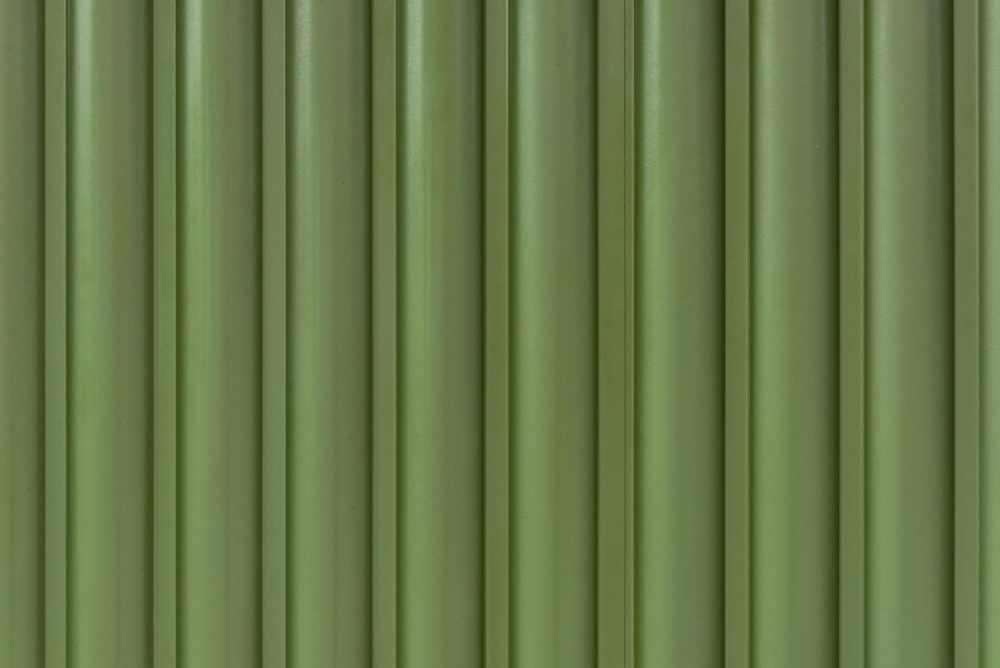
When choosing a fence for your Florida property, durability and weather resistance should be at the top of your priority list. Corrugated metal fencing has emerged as one of the most popular options for homeowners and businesses throughout the Sunshine State, offering unmatched protection against hurricanes, humidity, and intense sun exposure.
Unlike traditional wood or vinyl fencing that can warp, crack, or fade under Florida's challenging climate conditions, corrugated metal provides a long-lasting solution that maintains its appearance and structural integrity year after year. This comprehensive guide explores everything you need to know about corrugated metal fencing, from its key benefits to installation considerations specific to Florida properties.
Corrugated metal fencing consists of galvanized steel or aluminum panels featuring a distinctive wave-like pattern. This ribbed design isn't just for aesthetics—the corrugations add significant structural strength while allowing for thermal expansion and contraction. The panels are typically coated with protective finishes that resist rust, corrosion, and UV damage.
Modern corrugated metal fencing comes in various heights, colors, and finishes, making it suitable for both residential and commercial applications. The panels can be installed vertically or horizontally, depending on your design preferences and functional requirements.
Florida's climate presents unique challenges for fencing materials. Corrugated metal excels in these conditions because it won't rot, warp, or become damaged by moisture like wood fencing. The galvanized coating provides excellent protection against rust and corrosion, even in coastal areas with salt air exposure.
During hurricane season, corrugated metal fencing demonstrates remarkable wind resistance. The lightweight yet strong material can withstand high winds without becoming dangerous projectiles, and any panels that do sustain damage can be quickly and affordably replaced.
Busy homeowners appreciate that corrugated metal fencing requires minimal upkeep. There's no need for regular staining, painting, or sealing like you'd need with wood fencing. Occasional cleaning with a garden hose is typically sufficient to maintain its appearance.
The material won't attract termites or other pests that commonly plague wooden fences in Florida. This pest resistance eliminates the need for chemical treatments and reduces long-term maintenance costs.
While the initial investment in corrugated metal fencing may be higher than some alternatives, the long-term value is exceptional. The material's durability means fewer repairs and replacements over time. Additionally, the quick installation process can reduce labor costs compared to more complex fencing systems.
Corrugated metal fencing offers more aesthetic flexibility than many people realize. The material is available in numerous colors, from classic galvanized silver to bold blues, greens, and earth tones. Some manufacturers offer wood-grain finishes that provide the appearance of wood without the maintenance requirements.
The panels can be combined with other materials like stone or concrete posts for a more custom appearance. Horizontal installation creates a modern, contemporary look, while vertical installation offers a more traditional fence appearance.
Florida's sandy soil conditions require specific foundation considerations for fence installation. Corrugated metal fencing typically uses steel or concrete posts set in concrete footings. The lightweight nature of the panels reduces stress on these foundations compared to heavier materials.
Proper drainage around post foundations is crucial to prevent water accumulation that could lead to premature deterioration. Professional installers understand these local soil conditions and can recommend the appropriate foundation depth and concrete specifications.
Florida building codes include specific requirements for fence installations, particularly regarding wind load resistance. Corrugated metal fencing must be properly engineered to meet these standards, especially in coastal areas subject to higher wind speeds.
The spacing between posts, the type of fasteners used, and the installation method all impact the fence's ability to withstand severe weather. Working with experienced local contractors ensures compliance with all applicable codes and regulations.
Corrugated metal fencing excels at providing privacy due to its solid panel construction. However, local zoning regulations may limit fence heights in certain areas. Most residential installations range from 4 to 8 feet in height, while commercial applications may require taller installations.
The solid nature of corrugated metal panels can create wind load concerns at greater heights. Professional installers can recommend appropriate heights and support structures based on your specific location and wind zone requirements.
Wood fencing requires regular maintenance including staining, sealing, and board replacement due to Florida's climate. Termites and other pests pose ongoing threats to wooden structures. While wood may have a lower initial cost, the long-term maintenance expenses often make corrugated metal the more economical choice.
Vinyl fencing can become brittle under intense UV exposure and may crack or break during storms. While it requires less maintenance than wood, it doesn't offer the same durability as metal. Vinyl also has limited color options compared to the variety available in corrugated metal finishes.
Chain link provides security but offers no privacy and has limited aesthetic appeal. Corrugated metal delivers both security and privacy while offering superior visual appeal. The cost difference is often minimal when factoring in privacy slats or other chain link enhancements.
While some homeowners consider DIY fence installation, corrugated metal fencing benefits significantly from professional installation. Experienced contractors understand local building codes, proper foundation techniques, and wind load requirements specific to Florida conditions.
Professional installers also have access to commercial-grade materials and fasteners that may not be available to individual consumers. They can ensure proper panel alignment, adequate post spacing, and secure connections that will withstand Florida's challenging weather conditions.
Corrugated metal fencing represents an excellent investment for Florida property owners seeking a durable, low-maintenance, and attractive fencing solution. The material's superior weather resistance, cost-effectiveness, and design versatility make it ideal for the unique challenges of the Florida climate.
The key to maximizing these benefits lies in proper installation by experienced professionals who understand local conditions and requirements. Quality installation ensures your fence will provide years of reliable service while enhancing your property's security and privacy.
If you're looking for fence companies in Osceola County, FL, contact Wulff Fence today for free estimates. Our experienced team can help you design and install the perfect corrugated metal fencing solution for your property's specific needs and requirements.